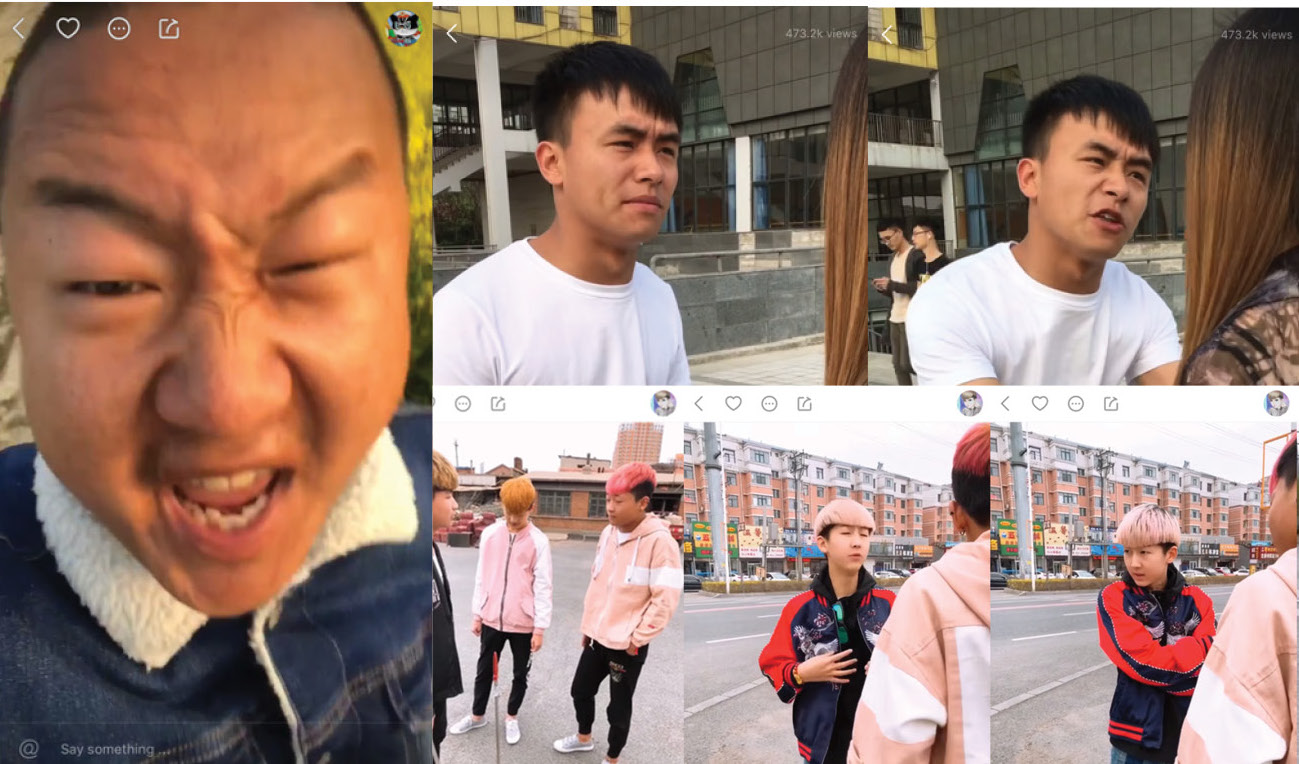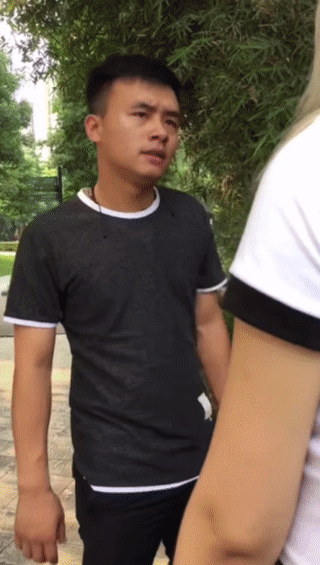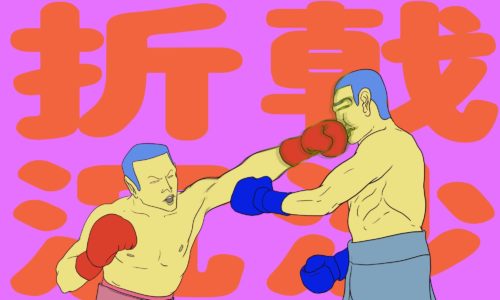Meet rural China’s viral online celebrities
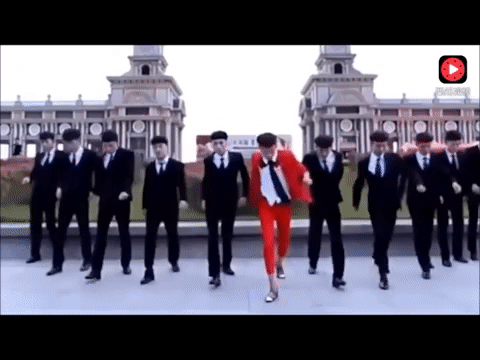
Like many observers of the Chinese tech scene, I downloaded Kuaishou a month ago merely trying to understand its popularity. The app, launched in 2011, recently received $1 billion from Tencent. But as I poked around, it soon became evident to me that Kuaishou is more than a simple video platform in the same vein as Meipai, where one can look at the country’s prettiest star-chasing girls obsessed with Meitu, or a generic live-streaming app such as Huajiao. Kuaishou is a lens into rural China — or as the blog Elephant Room put it, a “lens to a different China.” It shows us much more than Shanghai’s skyline or Beijing’s hutongs.
Urban Chinese users from first- and second-tier cities, upon discovering the app, became obsessed with these “inland” videos, which they jokingly characterize as “earthy,” or tuwei (土味 tǔwèi) — as the homemade content often features unconventional fashion styles and mundane stories.
But being a celebrity on Kuaishou isn’t easy. Not only must one have a solid mastery of the social shake dance (社会摇 shèhuì yáo — see below) and understand hanmai (喊麦 — “mic-shouting”), one must also understand the audience — and that often varies by region.
Northeastern style: Power, justice, brotherhood, and ¥¥¥
While the three provinces that make up what the Chinese refer to as its “northeast” (东北 dōngběi) region — Heilongjiang 黑龙江, Jilin 吉林, and Liaoning 辽宁 — developed rapidly after 1949, the region’s economy has been stagnant for decades, and is often compared with America’s Rust Belt. Due to the high unemployment rate, short video platforms like Kuaishou have provided northeastern Chinese with an alternative source of income.
The typical northeastern-style video is characterized by the work of Ling Hanzi 灵寒子, who has 197,000 followers. With pink-dyed hair and ripped jeans, he is not your typical high school friend who parties and vapes every Saturday night. Hailing from Tieling 铁岭, a small town in Liaoning, Ling knows the rules: a real man must speak up for justice and must never betray his brothers.
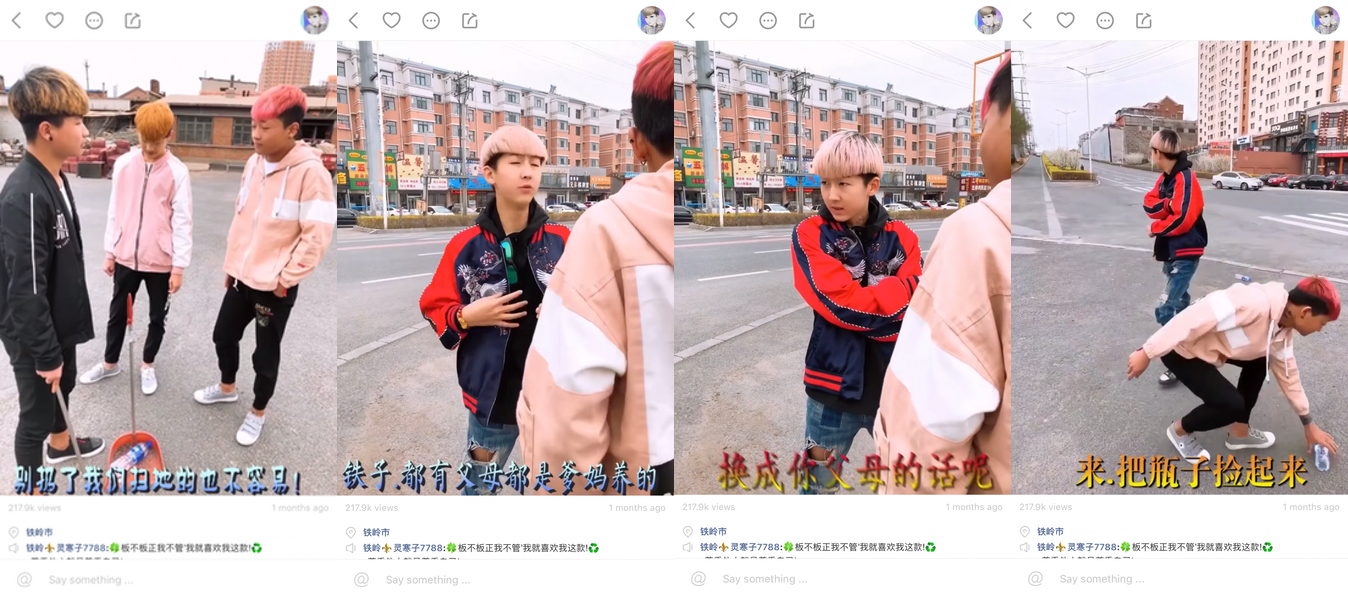
He wears flashy shades just like the other popular kids, but his fans recognize him by the distinctive giggling sound he makes every time he speaks up for low-income workers who are scorned by bullies. He isn’t the richest person in town, but he is a shehuiren 社会人 (shèhuì rén — a “person of society,” often used to describe an experienced gangster) who, despite his youth, is sophisticated enough to win the respect of others. In his deliberate set-ups, the generous Ling Hanzi always gives away crimson 100 yuan bills to those in need, and receives esteem in return. To Ling Hanzi, the Gucci t-shirt he purchased from Taobao for 39 yuan ($6) is not merely a symbol of status, but evidence that he genuinely understands Western fashion trends.

Ling Hanzi speaks the perfect Liaoning vernacular. If he calls you 铁子 (tiě zi), the northwestern version of “brotha,” you know you’ve either bullied someone or stabbed your friend in the back — and you will not get away with it. Ling Hanzi especially fancies inspiring philosophical quotes. If you ever wanted to show off your past glory to this pink-headed juvenile, always remember his words: “Yesterday’s sun shall not dry today’s clothes.” Now, let that sink in for a bit.
Southern style: Love, friendship, and life lessons
With 742,000 followers, Chengdu video-maker Ah Wei belongs to a different genre. In a Sixth Tone editorial, writer Ma Te explains that southern-style Kuaishou short videos “often highlight the transience of youth and the feelings of ambivalence toward life, love, and friendships.” Ah Wei is a down-to-earth young man who, though not wealthy, works diligently and tries his best to love his girlfriend with all sincerity. He might never bring his date to the most expensive bar in town, but he wouldn’t be bothered by walking three miles on barefoot at midnight to deliver her a bowl of Sichuanese malatang 麻辣烫 from their favorite street vendor.

But things don’t always end up the way he wants; his girlfriend constantly breaks up with him for other richer men. His colleagues and partners, who he used to consider his friends, scheme against him for business interests. Not unlike an average 25-year-old young man from Chengdu, Ah Wei is always troubled and perplexed due to the lack of money and connections. Yet unlike his Liaoningese brother Ling Hanzi, Ah Wei knows deep down that physically confronting one’s enemies doesn’t work in the south, where a real gentleman would never use his fists to solve a problem.
Ah Wei encounters his ex-girlfriend in this skit and asks her to leave.
Ah Wei wants his minute-long videos to break your heart, not to put his charisma on display. Although he faces misfortune, he gets his revenge in the end (as an unnamed sage once said, “Only time will tell”). Through the use of flash-forward, we see his ex-girlfriend return to him three years later after her new boyfriend has abandoned her, while a friend who betrayed him faces bankruptcy and goes to him for help. Ah Wei only silently walks away, leaving the other in deep sorrow and regret.
The rap of rural China
Another popular Kuaishou celebrity, Brother Giao (黑猫警长giao哥 hēimāo jǐngzhǎng giao gē), has 582,000 followers. If you ever visit rural Henan and find yourself lost in a forest, perhaps you will run into Brother Giao recording his new rap. It’s not hard to sense his enthusiasm through his facial expressions, gestures, and…body movements.

Brother Giao is the bizarro world version of American hip-hop. He does not compose any music, so his videos involve different lyrics stuffed into the same tune. And what of those lyrics? While professional rapper PG One was banned in China for rapping about drug abuse and sex, Brother Giao’s videos contain positive messages, such as “Don’t drink and drive” and “Don’t stay up late.”
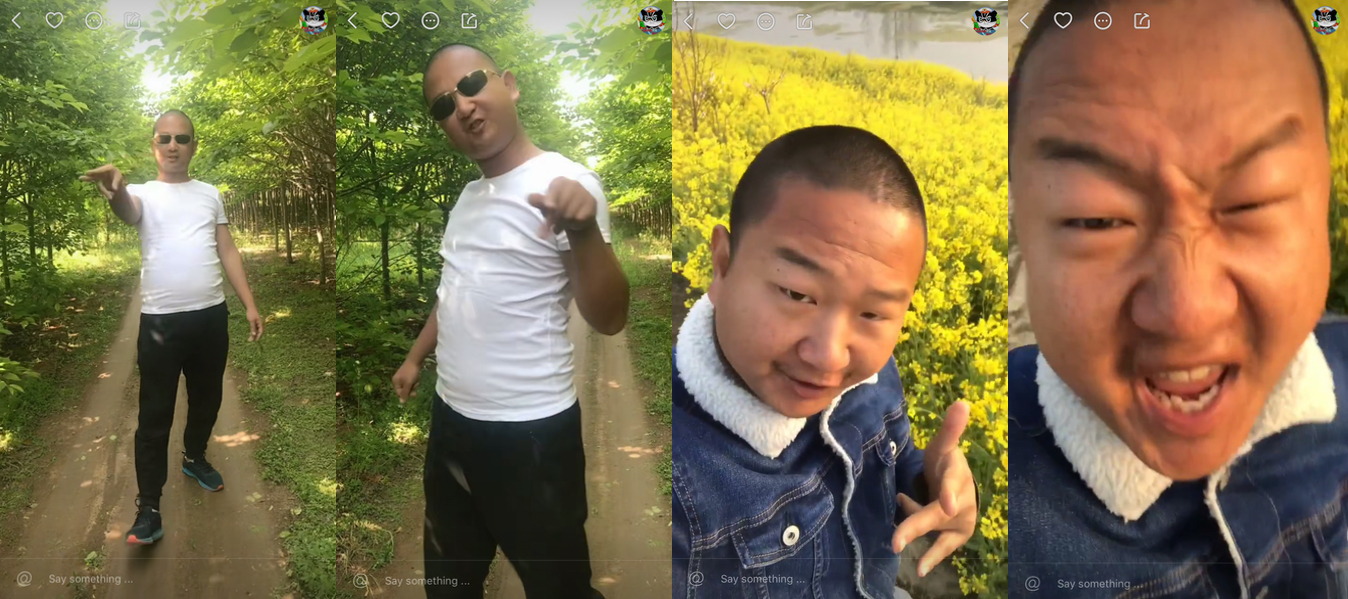
Screenshots from two of Brother Giao’s rap videos, “Don’t Drink and Drive” and “Don’t Stay Up Late.”
But what endears Brother Giao to the masses is his videos’ finales, in which he ends with “giao giao,” a phrase that does not have any meaning — not unlike Rowley’s punchline “Zoo-Wee-Mama!” in Diary of a Wimpy Kid — but made him a Kuaishou superstar. Would Brother Giao’s unpretentious music supersede American rappers and their bling? Watch and judge for yourself:
It’s not easy becoming a celebrity on Kuaishou, and ensuring that your video doesn’t trigger the censors — by featuring a meme of Peppa Pig, say — might be an even bigger challenge. In an effort to prohibit “anti-vulgar” content online, the Chinese government has taken down accounts of numerous Kuaishou hosts, including Paipaiqi 牌牌琦, once the most popular social shake video producer in the country (he boasted more than 33 million followers on the platform). What will it take to stay on top? Maybe the key is to stay low — with low-budget earthy productions. Ling Hanzi, Ah Wei, and Brother Giao can show you how it’s done.
